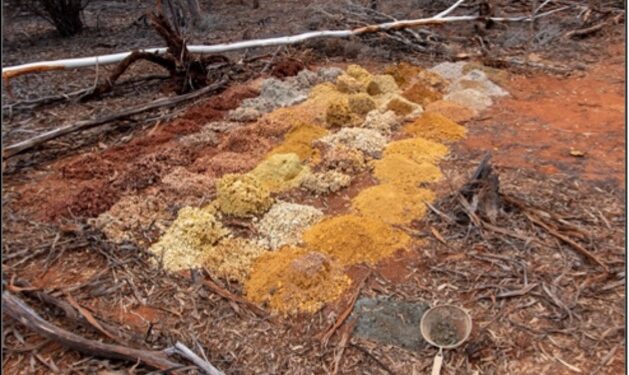Galileo Mining Ltd (ASX: GAL) has intersected massive sulphide with aircore drilling at the company’s 100% owned Norseman project located within the Kambalda nickel belt of Western Australia.
Hitting massive sulphide in an aircore drill programme is an exceptional result, Galileo’s Managing Director, Brad Underwood, said.
“Although the portable XRF measurements show minor amounts of nickel and copper, the overall context of the mineralisation is incredibly prospective. The sulphide occurs on the margin of a large ultramafic intrusion in the exact setting where mineral deposits can occur.
“Further to that, the sulphide is just 52 metres below surface (60m downhole) and with the prospective unit under a clay/alluvium cover which means the target is blind at surface. Samples have been submitted to the laboratory for chemical analysis which will include palladium, platinum, and gold assays.
“Meanwhile the aircore drill programme continues and is expected to be completed over the coming weeks. Follow up work on the massive sulphide prospect will include EM surveying to define the orientation of the target prior to RC drill testing which is planned for 2022.”
Single metre samples from the sulphide intercept in drill hole NAC105 have been submitted to the laboratory for priority analyses with an expected turnaround time of approximately four weeks. Standard composite drill hole samples from the remainder of the drill hole and all adjacent drill holes have also been submitted to the laboratory for analysis with assays expected from these samples in approximately eight to 10 weeks.
Galileo is currently halfway through a planned 10,000 metre aircore drill programme which has been designed to highlight zones of interest for further RC and diamond drill testing.
The sulphide mineralisation in NAC105 was intersected on the northern side of target JD1 under alluvium and clay cover. JD1 occurs in the central position of the ultramafic Jimberlana Dyke where surface sampling identified maximum palladium values in soils of 0.81 g/t Pd while the maximum nickel recorded was 0.2% Ni.
Surface geochemical anomalism is associated with the outcropping Jimberlana Dyke layered intrusion. Prospective areas of the dyke to the north and south occur under shallow cover with soil sampling ineffective due to the cover material. Aircore drilling was designed to extend over these areas where cover prevented effective soil sampling.
NAC105 was drilled to a depth of 61 metres with the final metre intersecting fresh massive sulphide at the end of the hole. The host rock appears to be a mafic/ultramafic intrusion based on drill chips immediately above the sulphide.
Drill holes to the south intersected ultramafic rocks and those to the north were logged as mafic/ultramafic at the end of hole.
For further information please visit: http://www.galileomining.com.au/












